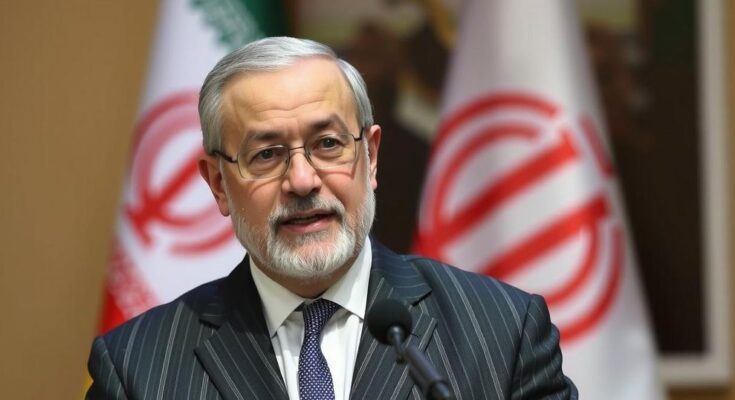Syria’s new leader Abu Mohammad al-Julani seeks a positive Iranian role in the region and hopes for U.S. sanctions to be lifted. He plans for elections in four years and aims for a National Dialogue Conference to unify various factions in Syria. His administration faces sectarian tensions and seeks support from regional powers and the international community, emphasizing a peaceful transition from the previous regime.
In a recent interview, Syria’s new leader, Abu Mohammad al-Julani, known as Ahmed al-Shara’a, expressed his hope that Iran would reconsider its regional interventions and policies. He emphasized the desire among many for a constructive Iranian role in the Middle East and noted the Military Operations Department’s effectiveness against Iranian headquarters despite injuries endured in the process. Julani also indicated potential elections in Syria within four years, attributing future stability across the region to the transition from the Assad regime to new governance.
The new leader’s engagements with western diplomats and regional countries have sought to foster support amidst rising sectarian tensions and protests in various cities. Julani stated that while he does not proclaim himself a liberator of Syria, he recognizes the sacrifices made by many and believes in a peaceful transition that guarantees regional security.
Julani elaborated that the process of constitutional reform would take approximately three years and asserted the necessity of a national population census before valid elections can be conducted. He envisions a National Dialogue Conference that will bring together the diverse social components of Syria, acknowledging the existing division due to previous regime policies.
Moreover, the new leadership aspires to address the fragmented Syrian societal landscape and intends to dissolve various armed factions through the proposed dialogue. Julani expressed the importance of dialogue with the Syrian Democratic Forces, recognizing the integral role of the Kurdish community within the broader Syrian demographic.
He also articulated expectations that the incoming U.S. administration under President Donald Trump would lift sanctions on Syria and commended Saudi Arabia for its contributions to the Syrian cause. He acknowledged that Syria’s military is heavily reliant on Russian support, underscoring the significance of the relationship with Moscow during this transitional phase for the country’s governance.
The article discusses the positions and aspirations of the newly appointed Syrian leader, Abu Mohammad al-Julani, following the fall of Bashar al-Assad’s regime. It reflects on the challenges and strategies he faces in restoring stability, addressing regional dynamics, and fostering relationships with both internal and external stakeholders. Al-Julani articulates a vision for a unified Syria that requires diplomatic engagement with various groups and foreign powers, notably Iran, the United States, Saudi Arabia, and Russia, amidst ongoing sectarian tensions.
The emergence of Abu Mohammad al-Julani as Syria’s new leader signifies a crucial turning point for the country. His emphasis on dialogue, potential elections, and collaboration with regional powers illustrates a strategic approach to governance aimed at restoring stability and unity. The road ahead remains fraught with challenges, as resolved engagement with diverse community factions and international allies becomes imperative to navigating Syria’s recovery and future development.
Original Source: www.jpost.com




